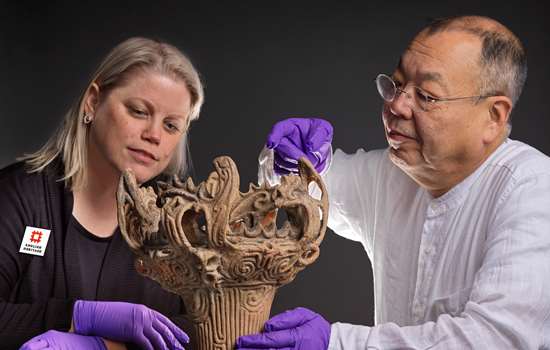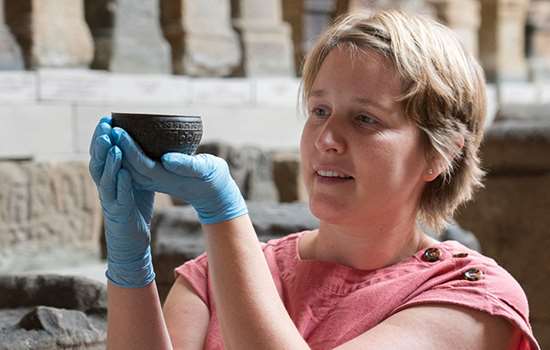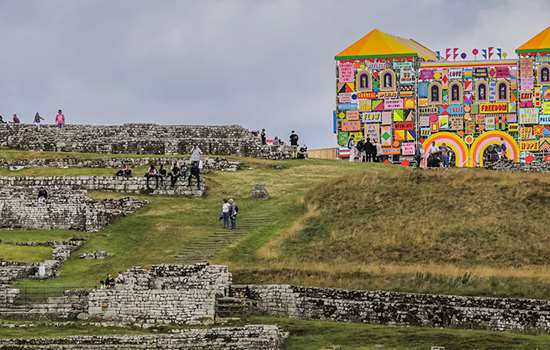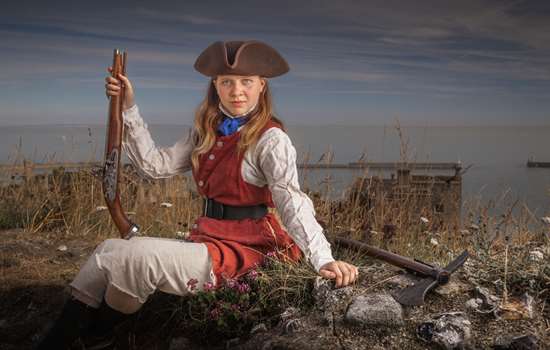28/08/2020
Second World War heroine honoured with blue plaque
English Heritage has unveiled a blue plaque to the Second World War spy, Noor Inayat Khan.
The new plaque marks the house on Taviton Street in Bloomsbury that was her family home when she left for Nazi-occupied France in 1943 as an undercover radio operator. She was killed at Dachau concentration camp in 1944, having revealed nothing to her captors, not even her real name.
Noor’s plaque marks the return of the Blue Plaques scheme after a brief hiatus following the Coronavirus outbreak. The scheme, which is now over 150 years old, has only been paused twice before (1915-19 and 1940-47).
The plaque was unveiled by Noor Inayat Khan’s biographer, Shrabani Basu. A live unveiling has been set up on the English Heritage Facebook page.
Author and historian Shrabani Basu, said:
'When Noor Inayat Khan left this house on her last mission, she would never have dreamed that one day she would become a symbol of bravery. She was an unlikely spy. As a Sufi she believed in non-violence and religious harmony. Yet when her adopted country needed her, she unhesitatingly gave her life in the fight against Fascism.
'It is fitting that Noor Inayat Khan is the first woman of Indian origin to be remembered with a Blue Plaque. As people walk by, Noor’s story will continue to inspire future generations. In today’s world, her vision of unity and freedom is more important than ever.'
Renowned for her service in the Special Operations Executive – an independent British Secret Service set up by Winston Churchill in 1940 – Noor was Britain’s first Muslim war heroine in Europe. She was also the first female radio operator sent into Nazi-occupied France.
Noor Inayat Khan was posthumously awarded the George Cross in 1949.
Anna Eavis, Curatorial Director at English Heritage, said:
'We're so pleased to be able to continue unveiling our 2020 blue plaques with this virtual ceremony after a very quiet few months. I am particularly delighted to start with Noor Inayat Khan, whose courage was unfaltering even in the face of such extreme danger.'
Noor Inayat Khan will join the likes of Ada Lovelace, the pioneer of computing, Rosalind Franklin, the scientist who helped discovered DNA, and Dame Maud McCarthy, who was army Matron-in-Chief during the First World War.
Only 14 per cent of more than 950 London blue plaques celebrate women. While this is still unacceptably low, English Heritage’s ongoing ‘plaques for women’ campaign has seen a dramatic rise in the number of public nominations for women since it launched in 2016.
Later this year, the charity plans to unveil plaques to Christine Granville, one of the most remarkable secret agents of the Second World War, and Barbara Hepworth, one of the 20th century’s greatest artists.
Nominations are the lifeblood of the London blue plaques scheme and if we are to continue to see a significant increase in the number of blue plaques for women, we need more female suggestions.
Watch the unveiling on Facebook at 19:00 on 28 August.
To find out more, including how to nominate someone for a blue plaque, visit our blue plaques page.
For more from English Heritage, follow us on Twitter, Facebook and Instagram.



